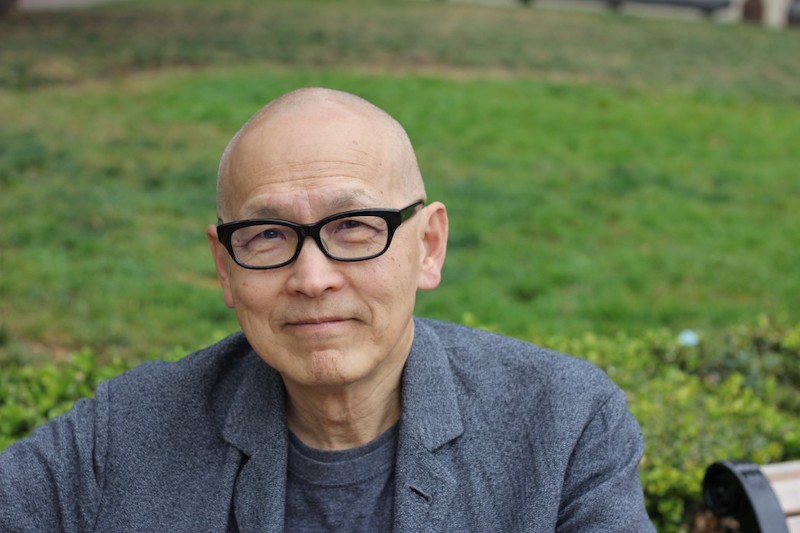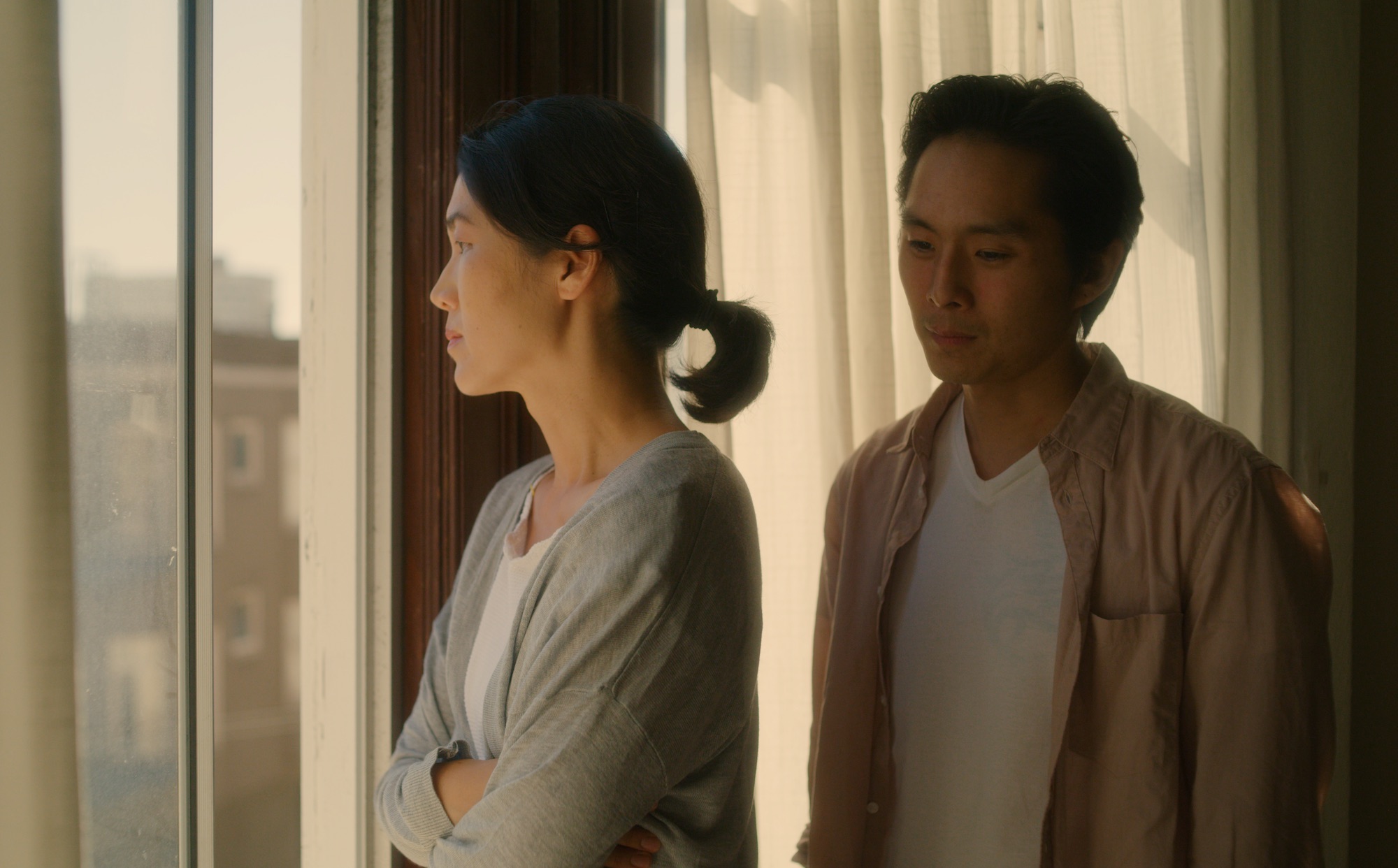The CAAMFest Forward fest, (Wed/14-Sun/18), packs a lot of film into only five days, including four drive-in features. Some examples: Lea Salonga in Concert with the Sydney Symphony Orchestra and 7000 Miles: Homecoming, a documentary about Bay Area hip hop performer Ruby Ibarra, celebrate Filipina musical talent on Wed/14. On Thu/15, the festival fetes Hong Kong cinema with a 10th anniversary screening of Ann Hui’s A Simple Life and the US premiere of Norris Wong’s My Prince Edward. The virtual program is compromised of more than 40 films plus other events, including the centerpiece film, Sujata Day’s feature debut Definition Please, and the closing night COVID-19 documentary 76 Days.
But one of the most anticipated films has to be Wayne Wang’s CAAM-produced opening night feature Coming Home Again, playing online Fri/16 at 7pm.
“I was working with CAAM on something,” Wang says. “It was a Virtual Reality project, but I couldn’t figure out how to use the VR. It confused me to see everything in 360 degrees. At that time, (producer) Don Young’s grandma passed away. Her apartment that she lived in forever is near where I am in the Russian Hill, Nob Hill area. We decided to shoot a film inside that house to, in a way, pay respects to the grandma.”
For the story, Wang turned to a piece by Chang-rae Lee that first appeared in the New Yorker in 1995. Set over the course of a single day, Chang-Rae (Justin Chon), the American son of Korean immigrant parents, prepares a New Year’s Eve feast. The dishes are family recipes, handed down by his now cancer-stricken mother (Jackie Chung), and while his father and sister will also be at the dinner, the meal is really for her. The film is a quiet drama with a mostly ambient soundtrack, suffused with Chang-rae’s memories.
“How I grew up and in most Chinese cultures and families, food is everything. I mean, everything happens around food,” Wang says. “I remember growing up and it’s, you know, three meals a day and they’re all very different and they have the different rituals attached.
“Food is so much part of my, my consciousness. In all my other films, there’s always food, but mostly in the background. There’s one or two where the food becomes a little more in the foreground. I’ve never wanted the food to take over, but this one was kind of different. I just think that’s such a great metaphor for this whole relationship and it’s expressed through food and the preparation of food.”
Coming Home Again represents a kind of homecoming for its maker. The Hong Kong-born director attended Oakland’s California College of Arts and Crafts, but he got another sort of an education in Berkeley, watching films at the Pacific Film Archive. There he was introduced to the cinema of Japanese auteur Yasujirô Ozu and Belgian filmmaker Chantal Akerman. Wang found inspiration for his own film in Ozu’s oeuvre and in Akerman’s 1975 drama Jeanne Dielman, 23, quai du commerce, 1080 Bruxelles.
“The narrative is not really kind of a typical or dramatic narrative where you have beginning, middle, and end, and there was drama and conflict between characters,” Wang says.
“I’ve always been a big fan of Ozu’s, of films like Tokyo Story. My whole career, besides the food, kind of goes around that whole aesthetic… There are a lot of empty shots of the house, which in Ozu’s mind, always the house itself and the objects in the house always contain the emotions of the characters.
“Jeanne Dielman also takes its time with long static shots that establishes a very different kind of rhythm from so-called Hollywood films and normal films. And I really appreciate that.”

Wang describes himself as basically retired from the film industry, by which he means he is no longer interested in working in the Hollywood rat race and being beholden to endless test screenings and note from executive suits with more power than sense.
“I remember the executives always, always coming up to me, even when we scored really high (with preview audiences), they come up and they say, “OK, now this is last part, you just take out any moment that doesn’t have dialogue or the characters aren’t doing anything. When you do that, you realize that the film doesn’t breathe, they just push us along and there’s no breathing.”
In a way, Wang’s career has come full circle, from his start in 1982 with Chan is Missing, a low-budget indie about two San Francisco cabbies’ search for a man who owes them money. Roger Ebert called it a “whimsical treasure of a film.” More independent films followed before his Hollywood breakthrough in 1993 with his adaptation of Amy Tan’s The Joy Luck Club, followed two years later by the Paul Auster-scripted Smoke.
But at a certain point, Wang found himself boxed in as a romantic comedy guy with projects that included the 2002 Jennifer Lopez-Ralph Fiennes cultural clash comedy Maid in Manhattan. After making Last Holiday, a 2006 Queen Latifah comedy in which she plays a woman who runs off to Europe after getting a terminal diagnosis, Wang was done with Hollywood. The features he has made since have returned him to his independent roots. There is joy in making the films he wants to make. Coming Home Again is no exception.
“I’m really happy with probably every frame of this film I could decide and make the decision to make it as much I wanted to be,” Wang says. “It’s not a happy film. It’s kind of sad, as all the Ozu films and the Japanese culture, see the world as kind of coming and going, and it’s about life and death. It’s like the cherry blossoms, it comes once a year. It’s beautiful. It stays a very short time and then it all disappears. I feel like that that theme is so much part of understanding my own life.”
Coming Home Again plays online Fri/16 at 7pm as part of CAAMFest forward. More info here.



